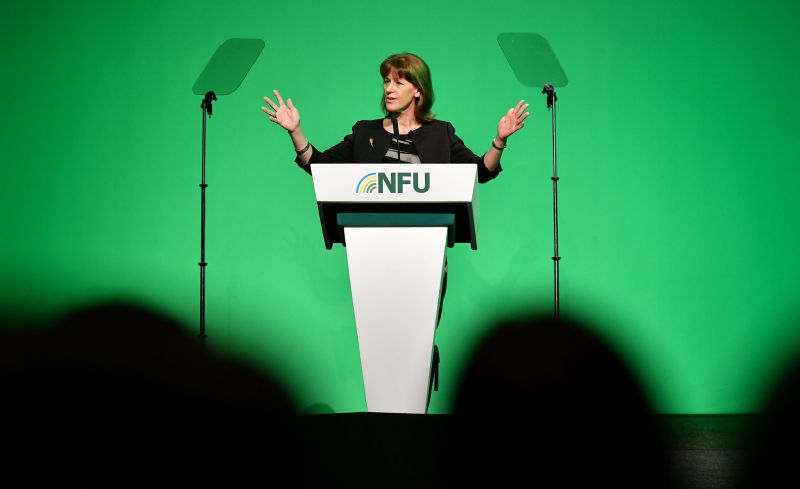
UK livestock farming is 'part of a solution' to the environmental crisis and the vast majority of farmers are ready to take action to combat it.
Dozens of university representatives met with the NFU to hear how sourcing British beef and lamb can play an important role in tackling climate change.
The 40 delegates heard from a variety of speakers including Dr Michelle Cain, University of Oxford, Professor Michael Lee, Rothamsted Institute, Professor Judy Buttriss, British Nutrition Foundation and Shropshire beef farmer James Evans.
They explained why 'over-simplistic reporting' of beef and lamb farming could, if taken to extremes, actually make the climate and environmental problem worse.
The BBC's recent broadcast of its controversial programme ‘Meat: A Threat To Our Planet?’ is seen as one example of this.
The documentary looked at the environmental issues stemming mainly from US intensive beef systems, but British farmers said the reality in the UK is different - highlighting that 'not all beef is the same'.
The speakers gave evidence as to why greenhouse gas emissions are not a black and white issue, especially when it comes to livestock production.
Delegates also heard about the UK’s looming dietary deficiency crisis and the role red meat plays in providing the body with important nutrients – nutrients that would be difficult to achieve in other diets.
Minette Batters, the union's president, chaired the discussion and explained that the UK is already producing some of the most climate-friendly beef and lamb in the world.
“The world is crying out for a leader in sustainable food production and British farmers are ready to take this opportunity.
“As this event has made clear, food sustainability is a complex issue. We need to consider the wider implications of our diets, look at the nuances of the metrics used to determine environmental impact, and question the sourcing of all of our food, not just our meat products.
“For universities, the question they should be asking is not whether they should be serving meat or not, but where has it been produced, and to what environmental and animal welfare standards?”
The issue of climate change is becoming an increasingly important subject for the UK farming industry.
A new survey by McDonald's UK and Map of Ag, released on Thursday (28 November), shows that 85% of farmers feel responsible as an industry to take action.
Over one-third (39%) of farmers are already rolling out innovative measures like using renewable energies by installing solar panels and erecting wind turbines, upgrading to more efficient machinery and modernising farming practices.
A further 20 percent will roll out climate-friendly initiatives within the next two years.
